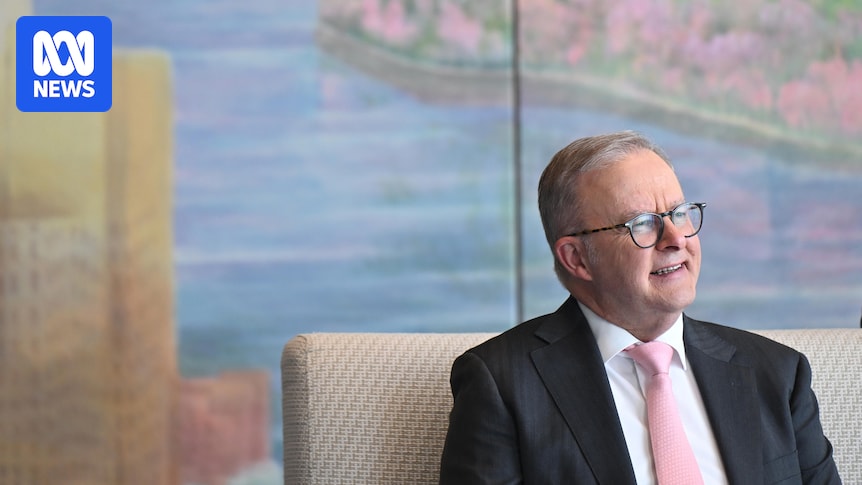The prime minister has been forced to bat away fresh defence demands from the Trump administration on the first full day of his visit to China, insisting that Australia supports “the status quo” in regards to Taiwan.
The Financial Times reported on Saturday that senior defence official Elbridge Colby — who is leading the Trump administration’s review of the AUKUS pact — was pressing both Australia and Japan to say what role they would play if the US and China went to war over Taiwan.
Mr Elbridge took to social media after the piece was published to say that Mr Trump was focused on restoring US strength, including “by urging allies to step up their defense spending and other efforts related to our collective defense”.
“Of course, some among our allies might not welcome frank conversations. But many, now led by NATO after the historic Hague Summit, are seeing the urgent need to step up and are doing so,” he said.
The story came at an awkward moment for Anthony Albanese who fielded several questions on Mr Colby’s comments during his visit to the commercial metropolis of Shanghai.
Mr Albanese told reporters Australia did not support “any unilateral action” on Taiwan and that its spending on both defence and aid was “about advancing peace and security in our region”.
“We have a clear position and we have been consistent about that … We don’t want any change in the status quo.“
Mr Albanese met with ex Socceroo Kevin Muscat at a famous waterfront in Shanghai. (Supplied: Prime Minister’s Office)
A separate US government source told the ABC that the US — which maintains its own policy of strategic ambiguity when it comes to the defence of Taiwan — was having a “broader conversation” with allies like Australia.
They also said Australia had rejected overtures from US officials who suggested Australia should give specific assurances to the Trump administration about how they’d deploy Virginia class submarines acquired through the AUKUS pact in the event of the US going to war.
Asked whether the US was entitled to seek assurance about an Australian response to a war over Taiwan given its own position of strategic ambiguity, Mr Albanese did not answer directly but said the question answered itself.
Earlier, acting Defence Minister Pat Conroy told the ABC’s Insiders on Sunday Australia did not “engage in hypotheticals” and would make its own decisions in response to any conflict.
“The sole power to commit Australia to war, or to allow our territory to be used for a conflict, is the elected government of the day,” he said.
“Sovereignty will always be prioritised and that will continue to be our position.”
Mr Albanese and Shanghai Party Chairman Chen Jining. (Supplied: Prime Minister’s Office)
Tourism focus of first leg
Mr Albanese has tried to use the first leg of his visit to highlight the human links between Australia and China, going for a walk down Shanghai’s famous waterfront with ex Socceroo Kevin Muscat, who is the manager for high-profile local soccer club Shanghai Port FC.
After that he launched a new “chapter” of a major Australian tourism campaign designed to coax more Chinese visitors back to Australia, who have returned to Australia more slowly than expected in the wake of COVID-19 travel bans.
He also met Shanghai Party Chairman Chen Jining, where he praised China’s rapid economic development.
“The development we can see across the river is symbolic of the extraordinary development that China has seen in recent decades, lifting literally hundreds of millions out of poverty,” he said.
Mr Albanese during his trip to China. (Supplied: Prime Minister’s Office)
Mr Albanese told the chair that Australia wanted to engage in “frank and constructive dialogue” to promote “stability” in the region.
“We deal with each other in a calm and consistent manner and we want to continue to pursue our national interests,” he said.
“And it’s in our interests to have good relations with China.”

